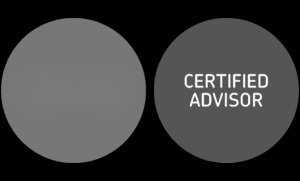
Cash basis accounting is still a popular option, however, due to the simplicity of the overall process. For example, if you invoice a client for $1,000 on March 1 and receive payment on April 15, you would record the income in April’s bookkeeping. If you manage inventory or make more than $5 million a year, accrual-basis accounting is the only method for you. Accrual-basis accounting is the more complicated method, but it’s also more accurate.
- However, the reverse is more difficult—the IRS must approve a change from accrual accounting to cash accounting.
- In a nutshell, when you receive payment from your customers and then immediately write it down in your books, that’s cash accounting.
- This means that income is recorded when it’s received, while expenses are recorded when they’re paid out.
- Cash basis accounting tends to be used by small businesses and organizations that pay taxes via their owner(s) personal tax returns.
With the accrual accounting method, income and expenses are recorded when they’re billed and earned, regardless of when the money is actually received. The accrual basis of accounting is basically the complete opposite of the cash method. Income and expenses are recorded when they’re billed and earned, regardless of when the money is actually received.
Liabilities in Accounting Decoded: What Is a Liability & How Can It Impact Your Business?
The difference between cash basis and accrual basis accounting comes down to timing. If you do it when you get a bill or raise an invoice, it’s accrual basis accounting. However, this method might not provide an accurate picture of long-term profitability since sales made in one period may not be accurately reflected until funds have cleared. Your accounting method determines when transactions should be reported on your financial statements. The cash method is named because you record a transaction when you get the cash. In the accrual method, you report your accrued income and expenses when they were earned or incurred regardless of when the cash changes hands.
Deciding whether to use cash or accrual accounting depends on the size and complexity of your business as well as its needs in terms of reporting accuracy and taxation compliance. Accrual accounting is also required by Generally Accepted Accounting Principles (GAAP) for businesses that exceed certain size thresholds. This ensures consistency across different companies’ financial statements and makes it easier to compare performance between them. While easy to understand and implement, cash accounting may not provide enough detail for larger companies looking for more accurate financial reports. However, one disadvantage is that certain revenue or expense items may go unrecognized if they have not yet been paid or received in full.
Some small businesses choose a hybrid of cash accounting and accrual accounting – they might use accrual for inventory but cash for income and expenses. Accrual can be more work because you have more lines to enter (ie. accounts receivable and accounts payable) and because you need to make sure those lines are posted in the correct period. Since you’re entering these extra lines, you’ll need to pay taxes on them even though you may have not yet received the income or paid for the expense. When you use accrual accounting, you don’t have to pay taxes on orders/services until they’re fulfilled. For example, if you receive prepayment from a client, you won’t be taxed on that prepayment until you fulfill their order or service.
Pros and Cons of Accrual Accounting
Most small businesses are invoicing customers and waiting for the payment to come in. At the same time, they are receiving bills from their vendors and suppliers. Businesses may Direct Costs & Indirect Costs: Complete Guide + Examples file on a cash basis but they are operating on an accrual basis. Another situation where accrual accounting might be useful is when dealing with long-term contracts or projects.

This does not take into account any accounts receivable or payable, as it only applies to payments from clients when the cash is in hand, and expenses when the transaction clears your bank account. It’s more accurate, and if you manage inventory, it’s the method the IRS requires you to use. With cash-basis accounting, you won’t record financial transactions until money leaves or enters your bank account.
AccountingTools
Accrual basis accounting recognizes business revenue and matching expenses when they are generated—not when money actually changes hands. This means companies record revenue when it is earned, not when the company collects the money. To decide which method is best suited for your business, we must first understand the difference between accrual and cash accounting methods. It’s easy to understand because it only records transactions when actual money changes hands. This means there are fewer complex calculations involved, which can save time and resources for small businesses. However, this method may not be suitable for larger companies with complex operations as they often use accrual accounting to accurately track their finances.
One downside to using the cash basis of accounting is that it can produce an inaccurate overall picture of your finances. Since it doesn’t account for all incoming revenue or outgoing expenses, it can lead you to believe you’re having a very high cash-flow month, when in actuality this is a result of last month’s work. If accrual-basis accounting doesn’t measure how much cash is physically in your bank account, how is it more accurate than the cash method? Because instead of hyper-focusing on the exact time a transaction occurred, it focuses on what you earned and what you owed in a given period. Every business has to record all its financial transactions in a ledger—otherwise known as bookkeeping. You’ll need to do this if you want to claim tax deductions at the end of the year.

It can give you an inaccurate long-term financial picture of your company. For example, if your business has a lot of money coming in it could lead you to believe you’re having a good month, but in actuality it’s last months sales that are just coming in now. Might overstate the health of a company that is cash-rich but has large sums of accounts payables that far exceed the cash on the books and the company’s current revenue stream. Accrual basis and cash basis are two methods of accounting used to record transactions. If you sell $5,000 worth of machinery, under the cash method, that amount is not recorded in the books until the customer hands you the money or you receive the check.
Pros and Cons of Cash Accounting
With accrual accounting, you account for what revenue you’ve earned and expenses incurred, regardless of whether the payments for these are made before or after the period. As such, cash accounting is simpler, but accrual gives a more accurate picture of your company’s finances. Accrual accounting became necessary as the complexity of business transactions grew. It became the prevalent accounting method for larger companies (as well as some small ones) because it could depict a more accurate representation of a company’s financial health.
Whether you are just starting out or are looking to fine-tune your approach, the experts at TempDev can help. TempDev also offers staff augmentation services, including temporary revenue cycle managers and billers, to help with your revenue cycle needs if you need to get caught up from a transition. The accrual basis is used by all large companies and is required for tax reporting purposes when annual revenue exceeds $5 million. The cash method is typically used by small businesses because it’s easy to use.
As a result, an investor might conclude the company is making a profit when, in reality, the company might be facing financial difficulties.
The salesperson earns a commission of $1,000 for a sale they executed in January, and the commission is paid in March. According to the matching principle, you must record both the sale and the expense in the same period, which is January. In other words, if you have a small stationery business that purchased paper supplies on credit in June, but didn’t actually pay the bill until July, you would record those supplies as a July expense.
Though the cash-basis accounting technique has advantages, there are notable setbacks. When you start out in business, you may not think which accounting method to use is an important decision. But, as shown here, it has so many critical consequences, you cannot ignore the question and need to think it through carefully.
The absence of inventory in an enterprise requires it to choose one type of accrual and cash basis accounting. In the lack of stock, the organisation then uses cash-based accounting, but if the enterprise has inventory, it is necessary to use the accrual method. Accrual-focused accounting tracks revenue as it is earned and expenses the moment they are incurred.
It’s a way to keep track of cash while still recognizing accrued revenue and expenses. By tracking cash flow, you forecast any shortfalls where you may run out of money before your next payments come in. One of the most significant differences between cash and accrual accounting is their effect on taxes. Because revenue and expense recognition varies depending on whether you follow the cash or accrual method, this ultimately affects when you have to pay your taxes. To understand this better, let’s consider the following scenario for both methods.
These articles and related content is not a substitute for the guidance of a lawyer (and especially for questions related to GDPR), tax, or compliance professional. When in doubt, please consult your lawyer tax, or compliance professional for counsel. Sage makes no representations or warranties of any kind, express or implied, about the completeness or accuracy of this article and related content. Our easy-to-use template will help you understand the cash coming in and going out of your business so you can make smarter decisions.